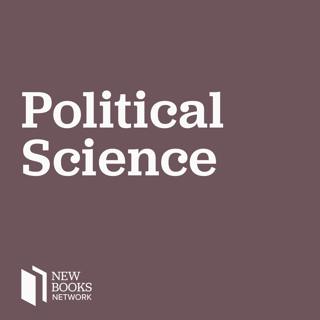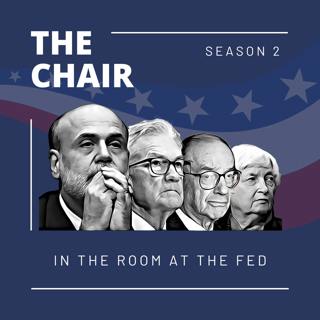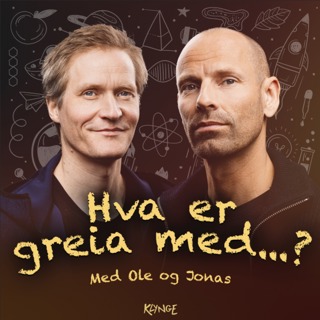
Martin Thomas, "The End of Empires and a World Remade: A Global History of Decolonization" (Princeton UP, 2024)
Empires, until recently, were everywhere. They shaped borders, stirred conflicts, and set the terms of international politics. With the collapse of empire came a fundamental reorganization of our world. Decolonization unfolded across territories as well as within them. Its struggles became internationalized and transnational, as much global campaigns of moral disarmament against colonial injustice as local contests of arms. In this expansive history, Martin Thomas tells the story of decolonization and its intrinsic link to globalization. He traces the connections between these two transformative processes: the end of formal empire and the acceleration of global integration, market reorganization, cultural exchange, and migration. The End of Empires and a World Remade: A Global History of Decolonization (Princeton UP, 2024) shows how profoundly decolonization shaped the process of globalization in the wake of empire collapse. In the second half of the twentieth century, decolonization catalyzed new international coalitions; it triggered partitions and wars; and it reshaped North-South dynamics. Globalization promised the decolonized greater access to essential resources, to wider networks of influence, and to worldwide audiences, but its neoliberal variant has reinforced economic inequalities and imperial forms of political and cultural influences. In surveying these two codependent histories across the world, from Latin America to Asia, Thomas explains why the deck was so heavily stacked against newly independent nations.Decolonization stands alongside the great world wars as the most transformative event of twentieth-century history. In The End of Empires and a World Remade, Thomas offers a masterful analysis of the greatest process of state-making (and empire-unmaking) in modern history. Martin Thomas is professor of imperial history and director of the Centre for Histories of Violence and Conflict at the University of Exeter. A fellow of the Leverhulme Trust and the Independent Social Research Foundation, he is the author of Violence and Colonial Order: Police, Workers and Protest in the European Colonial Empires, 1918–1940; Fight or Flight: Britain, France, and the Roads from Empire; and other books. Morteza Hajizadeh is a Ph.D. graduate in English from the University of Auckland in New Zealand. His research interests are Cultural Studies; Critical Theory; Environmental History; Medieval (Intellectual) History; Gothic Studies; 18th and 19th Century British Literature. YouTube channel. Twitter. Learn more about your ad choices. Visit megaphone.fm/adchoices Support our show by becoming a premium member! https://newbooksnetwork.supportingcast.fm/political-science
7 Mai 48min

Time to Rethink Democracy: Participatory and More-Than-Human Perspectives
This is a special episode that features a conversation between Sonia Bussu and Hans Asenbaum on democracy, capitalism, climate and the practices and prospects of participatory, deliberative and more-than-human democracy to transform their relationship. Can we rethink democracy beyond the liberal-democratic institutions that were created as part of the bargain for fossil-fuel-driven, Western-centric economic growth? What does and could democratic participation look like? What does it mean to include the non-human in our understanding of democracy? Sonia Bussu is Associate Professor in Public Policy at the University of Birmingham. She researches participatory democracy and in her work she uses participatory and creative methods for research and public engagement. She has led on projects on youth participation to influence mental health policy, youth employment policies, as well as coproduction of research on health and social care integration, and leadership styles within collaborative governance. She is scientific coordinator of a Horizon Europe project on participatory policymaking, INSPIRE. She is co-editor of Reclaiming Participatory Governance: Social Movements and the Reinvention of Democratic Innovation. Routledge. Hans Asenbaum is a Senior Research Fellow at the Centre for Deliberative Democracy and Global Governance at the University of Canberra. His research interests include radical democracy, queer and gender studies, digital politics, and participatory research methods. In 2022 he received the ECPR Rising Star Award. Hans is the author of The Politics of Becoming: Anonymity and Democracy in the Digital Age (Oxford University Press, 2023) and co-editor of Research Methods in Deliberative Democracy (with Ercan, Curato and Mendonça, Oxford University Press, 2022). His work has been published in the American Political Science Review, New Media & Society, Politics & Gender, and the International Journal of Qualitative Methods. The People, Power, Politics podcast brings you the latest insights into the factors that are shaping and re-shaping our political world. It is brought to you by the Centre for Elections, Democracy, Accountability and Representation (CEDAR) based at the University of Birmingham, United Kingdom. Join us to better understand the factors that promote and undermine democratic government around the world and follow us on Twitter at @CEDAR_Bham! Learn more about your ad choices. Visit megaphone.fm/adchoices Support our show by becoming a premium member! https://newbooksnetwork.supportingcast.fm/political-science
6 Mai 39min

Stephen H. Legomsky, "Reimagining the American Union: The Case for Abolishing State Government" (Cambridge UP, 2024)
Since American president Donald Trump was elected to a second term, it is common to hear citizens, journalists, and public officials distinguish between the laws and leaders of their states and the national government. Those who oppose Trump’s policies with regard to reproductive rights, gun violence, LGBTQ+, education, police, and voting often present state constitutions, courts, laws, culture, and leaders as a bulwark against Trump’s autocratic rule. But Professor Stephen H. Legomsky sees it differently. His new book, Reimagining the American Union: The Case for Abolishing State Government (Cambridge University Press 2025) argues that – if we care about democracy – we should imagine an America without state government. No longer a union of arbitrarily constructed states, the country would become a union of one American people. Reimagining the American Union understands state government as the root cause of the gravest threats to American democracy. While some of those threats are baked into the Constitution, the book argues that others are the product of state legislatures abusing their powers through gerrymanders, voter suppression, and other less-publicized manipulations that often target African-Americans and other minority voters. Reimagining the American Union interrogates how having national, state and local legislative bodies, taxation, bureaucracy, and regulation wastes taxpayer money and burdens the citizenry. After assessing the supposed benefits of state government, Professor Legomsky argues for a new, unitary American republic with only national and local governments. Stephen H. Legomsky is the John S. Lehmann University Professor Emeritus at the Washington University School of Law. Professor Legomsky has published scholarly books on immigration and refugee law, courts, and constitutional law. He served in the Obama Administration as Chief Counsel of U.S. Citizenship and Immigration Services and later as Senior Counselor to Secretary of Homeland Security Jeh Johnson. He was a member of President-Elect Biden’s transition team, has testified often before Congress, and has worked with state, local, UN, and foreign governments. Mentioned: Cambridge University press is offering a 20% discount here (until October) Susan’s NBN interview with Richard Kreitner on Break It Up: Secession, Division, and The Secret History of America’s Imperfect Union Jonathan A. Rodden’s Why Cities Lose: The Deep Roots of the Urban-Rural Political Divide (Basic Books 2019) Hendrik Hertzberg’s review of Robert A. Dahl’s How Democratic Is the American Constitution (Yale) Shelby County v. Holder, the Supreme Court case that overturned the Voting Rights Act of 1965’s pre-clearance requirement for historically discriminating districts Learn more about your ad choices. Visit megaphone.fm/adchoices Support our show by becoming a premium member! https://newbooksnetwork.supportingcast.fm/political-science
5 Mai 59min

Jerome Powell: “We don't think you're a straight shooter"
More than any one institution, the US Federal Reserve drives global capital markets with its decisions and communications. While its interest rates are set by a committee, for almost a century, the Fed’s philosophy and operational approach have been moulded by one person: the Chair of the Board of Governors. In the first series of The Chair, Tim Gwynn Jones talked to authors of books about the Fed's foundational Chairs – Marriner Eccles, Bill Martin, Arthur Burns, and Paul Volcker. In this second series, he covers the people who chaired the Fed through the post-1990 period of financialisation, globalisation, and – perhaps today – deglobalisation. This eighth and final episode covers the life and times of the current chair, Jerome ("Jay") Powell - the technocratic lawyer-turned-banker who managed the global economy through two unprecedented disasters: the Covid pandemic and Donald Trump’s protectionist trade policies. As the episodes about Martin, Burns, and Volcker all attest, Powell isn't the first chairman to face political blowback. But he is the first to be publicly denounced as “Mr Too Late” and a “major loser” by a president intent on removing him from office before his term ends in mid-2026. To discuss Powell, Tim is joined by Nick Timiraos, author of Trillion Dollar Triage: How Jay Powell and the Fed Battled a President and a Pandemic and Prevented Economic Disaster (Little, Brown, 2022). “If people think you're not going to act in the country's best interest, that's bad for the Fed,” he says. “The next time the Fed decides it needs to do something that actually is ‘exigent and unusual’, people will say: ‘Well, wait a minute, the last time you did this, we thought you were a toady for the Democrats or a toady for the Republicans. We don't think you're a straight shooter. We're not going to let you raise interest rates by 25 basis points. We're not going to give you money to backstop your purchases of corporate credit’. Those are the kind of medium and long term risks from a fight with the White House. I think, for Powell, the worst outcome is that people don't think you have an independent central bank anymore. Your monetary policy won't be credible. Why not just roll that thing into the Treasury Department if that's what you're going to do?” Since 2017, Nick Timiraos has been the chief economics correspondent at The Wall Street Journal and has developed an unrivalled reputation as the "Fed whisperer". Learn more about your ad choices. Visit megaphone.fm/adchoices Support our show by becoming a premium member! https://newbooksnetwork.supportingcast.fm/political-science
4 Mai 51min

Janet Yellen: “She had a view that the world was on fire”
More than any other single institution, the US Federal Reserve drives global capital markets with its decisions and communications. While its interest rates are set by a committee, for almost a century, the Fed’s philosophy and operational approach have been moulded by one person: the Chair of the Board of Governors. In the first series of The Chair, Tim Gwynn Jones talked to authors of books about the Fed's foundational Chairs – Marriner Eccles, Bill Martin, Arthur Burns, and Paul Volcker. In this second series, he covers the people who chaired the Fed through the post-1990 period of financialisation, globalisation, and – perhaps today – deglobalisation. The third episode of the second series covers Janet Yellen – not only the first woman to become Fed Chair but the first person of either sex to lead the Fed, the Treasury, and the Council of Economic Advisors. To discuss Ben Bernanke’s successor, Tim is joined by Jon Hilsenrath, author of Yellen: The Trailblazing Economist Who Navigated an Era of Upheaval (Harper Collins, 2022). “Bernanke was a consensus builder,” says Hilsenrath. “He wasn't the kind of guy who was going to push people on a personal level out of their comfort zones … Yellen was a bit of a bulldog there, but she was also a bulldog with the Fed staff. I mean, she had a view that the world was on fire and that they, you know, and that they had to be moving like people putting out a fire”. In 2023, Hilsenrath left the Wall Street Journal after a 26-year career during which he developed a market reputation as a pre-eminent Fed-watcher. He’s still watching the Fed but now for his own advisory firm. Learn more about your ad choices. Visit megaphone.fm/adchoices Support our show by becoming a premium member! https://newbooksnetwork.supportingcast.fm/political-science
3 Mai 59min

Ben Bernanke: “Like being a paleontologist”
More than any other single institution, the US Federal Reserve drives global capital markets with its decisions and communications. While its interest rates are set by a committee, for almost a century, the Fed’s philosophy and operational approach have been moulded by one person: the Chair of the Board of Governors. In the first series of The Chair, Tim Gwynn Jones talked to authors of books about the Fed's foundational Chairs – Marriner Eccles, Bill Martin, Arthur Burns, and Paul Volcker. In this second series, he covers the people who chaired the Fed through the post-1990 period of financialisation, globalisation, and – perhaps today – deglobalisation. Episode two of the second series covers the life and crisis-era times of Ben Bernanke, the man who filled Alan Greenspan’s big shoes and ran the Fed from 2006 to 2014. A shy but world-renowned monetary economist and historian of the Great Depression, Bernanke was left holding the proverbial bomb when the financial system came close to collapse in 2008. To discuss Bernanke, Tim is joined by David Wessel, author of In FED We Trust: Ben Bernanke's War on the Great Panic (Crown, 2010). “It wasn't obvious when he was appointed to the Fed in 2006 that having somebody who had spent their life studying the Great Depression would be well equipped to be Alan Greenspan's successor,” says Wessel. “I have sometimes said it was a like being a paleontologist. It's very nice that you know a lot about dinosaurs, but what use is that to us today until one day a Stegosaurus appears on the horizon. And it was remarkable good fortune for the country and the world that there was a guy who happened to have studied all the mistakes that the Fed made in the 1920s and the 1930s in a position to do something about it when a situation, not all that dissimilar, appears both to his surprise and to almost everybody else's”. Wessel is two-time Pulitzer Prize winning journalist who now runs the Hutchins Center on Fiscal and Monetary Policy at the Brookings Institution. For 30 years, he worked at the Wall Street Journal - reporting mostly from Washington and covering economics and the Fed. Learn more about your ad choices. Visit megaphone.fm/adchoices Support our show by becoming a premium member! https://newbooksnetwork.supportingcast.fm/political-science
2 Mai 44min

Alan Greenspan: “The man who knew”
More than any other single institution, the US Federal Reserve drives global capital markets with its decisions and communications. While its interest rates are set by a committee, for almost a century, the Fed’s philosophy and operational approach have been moulded by one person: the Chair of the Board of Governors. In the first series of The Chair, Tim Gwynn Jones talked to authors of books about the Fed's foundational Chairs – Marriner Eccles, Bill Martin, Arthur Burns, and Paul Volcker. In this second series, he covers the people who chaired the Fed through the post-1990 period of financialisation, globalisation, and – perhaps today – deglobalisation. The first episode of the second series explores Alan Greenspan, the chairman who followed Paul Volcker and ran the Fed from 1987 until 2006. Once bestowed with “Maestro” status, Greenspan – who turns 100 in March 2026 – has seen his reputation deflate in the wake of the post-2008 financial crisis. To discuss the fallen Maestro, Tim is joined by Sebastian Mallaby, author of The Man Who Knew: The Life and Times of Alan Greenspan (Bloomsbury, 2016). “Greenspan was the man who knew,” says Mallaby. “He was the man who knew that bubbles were extremely destructive, and yet he was not the man who acted against those bubbles. So, whilst he was great on inflation and on stabilising the price of eggs, he was not good on asset-price inflation or stabilising the price of nest eggs”. A former journalist at The Economist and the Washington Post, Mallaby is the prize-winning author of The World's Banker – a portrait of the World Bank under James Wolfensohn – and More Money Than God: Hedge Funds and the Making of a New Elite. He is now the Paul A. Volcker senior fellow for international economics at the Council on Foreign Relations. Learn more about your ad choices. Visit megaphone.fm/adchoices Support our show by becoming a premium member! https://newbooksnetwork.supportingcast.fm/political-science
1 Mai 49min

Nicholas D. Anderson, "Inadvertent Expansion: How Peripheral Agents Shape World Politics" (Cornell UP, 2025)
Territorial expansion is typically understood as a centrally driven and often strategic activity. But Nicholas D. Anderson’s new book, Inadvertent Expansion (Cornell University Press, 2025), shows that nearly a quarter of great power coercive territorial acquisitions since the nineteenth century have in fact been instances of what the author calls “inadvertent expansion.” A two-step process, inadvertent expansion first involves agents on the periphery of a state or empire acquiring territory without the authorization or knowledge of higher-ups. Leaders in the capital must then decide whether to accept or reject the already-acquired territory. Through cases ranging from those of the United States in Florida and Texas to Japan in Manchuria and Germany in East Africa, Anderson shows that inadvertent expansion is rooted in a principal-agent problem. When leaders in the capital fail to exert or have limited control over their agents on the periphery, unauthorized efforts to take territory are more likely to occur. Yet it is only when the geopolitical risks associated with keeping the acquired territory are perceived to be low that leaders are more likely to accept such expansion. Accentuating the influence of small, seemingly insignificant actors over the foreign policy behavior of powerful states, Inadvertent Expansion offers new insights into how the boundaries of states and empires came to be and captures timeless dynamics between state leaders and their peripheral agents. Our guest is Nicholas D. Anderson, an Assistant Professor of Political Science and International Affairs at The George Washington University. Our host is Eleonora Mattiacci, an Associate Professor of Political Science at Amherst College. She is the author of "Volatile States in International Politics" (Oxford University Press, 2023). Learn more about your ad choices. Visit megaphone.fm/adchoices Support our show by becoming a premium member! https://newbooksnetwork.supportingcast.fm/political-science
1 Mai 34min




















